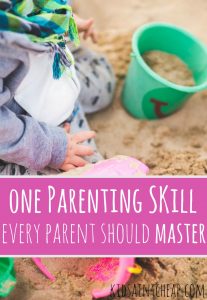
It’s a question most people have asked themselves at some point: “Am I really ready for this?”
For some, parenting is a dream filled with purpose and joy. For others, the reality hits like stepping on a ton of LEGOs.
The idea that new parents might benefit from some kind of evaluation has floated around for years. But should parenting readiness require something as formal as passing a test?
Before we go further, let’s clarify: there are no legally required parenting tests before you have a child, and while it may sound appealing in theory, it raises a complex mix of ethical, legal, and emotional challenges. Let’s unpack these issues step by step.
Why the Idea Gains Traction
Every parent wants what’s best for their child, yet we approach parenting with less prep than we need for a driver’s license. The concept of pre-parenting tests often stems from a desire to minimize neglect, abuse, or plain ignorance about child development. Indeed, early education about topics like feeding, discipline, and emotional intelligence could arguably reduce problems down the line. But let’s be real—how do you test empathy, adaptability, or resilience?
While some couples opt for genetic counseling or health screenings, these don’t measure if you’re mentally prepared for parenthood. They focus on medical risks, not your ability to handle sleepless nights or a tantrum in aisle five at the grocery store.
What We’re Really Measuring With “Parenting Readiness”
Readiness to raise a child goes beyond finances and a Pinterest-worthy nursery. It means understanding developmental stages, having strategies to cope with stress, and possessing a willingness to grow with your kid.
Knowing what to expect at each stage can impact how parents behave and bond with their children in a positive way. But is there a single metric that captures all the intangible qualities—like patience, love, or moral alignment—that define good parenting?
The answer is less about a test and more about a continuous process. Parenting readiness can’t be pinned down in a pass/fail scenario. We learn by doing, adjusting, and, yes, sometimes failing, then trying again.
Existing Tests Focus on Medical Realities—Not Parenting Skills
Prospective parents do face some screenings, but they revolve around health, not emotional or practical readiness. Think prenatal tests or preconception genetic assessments.
These might tell you about risks for certain diseases or conditions, but won’t evaluate how well you’ll handle the real-life rollercoaster of raising a child. They’re about pregnancy viability and fetal health, not about your emotional toolkit for dealing with a rebellious middle-schooler or a newly minted toddler’s bedtime meltdown.
Likewise, organizations like the American Academy of Pediatrics offer guidance on child health, but not a standardized test for “Are you emotionally fit to parent?” That’s because it’s a subjective mix of temperament, environment, and personal history—none of which can be graded like an exam.
Legal and Ethical Entanglements
A government-mandated test to have children would run into huge ethical and legal roadblocks. First, it could easily infringe on fundamental human rights—reproductive freedom is typically regarded as a private matter.
Second, it opens the door to discrimination: who decides what makes a person “fit” or “unfit” to be a parent? If we look at historical examples like forced sterilizations or one-child policies, the fear of authoritarian overreach isn’t far-fetched. Mandating tests or restricting parenting can become a slippery slope to violating personal liberty.

Learning Should (and Can) Be Voluntary
Instead of imposing a pass/fail test, perhaps we can focus on providing voluntary resources. Imagine widely accessible parenting education: classes on child development, emotional support, or conflict resolution. By framing these as supportive tools rather than requirements, parents (and prospective parents) can gain the insights they need without feeling judged or coerced.
It All Comes Down to Real-Life Growth
No multiple-choice quiz can prepare you for that 3 a.m. feeding or your child’s first heartbreak at school. Parenting is an ongoing dance of trial, error, and reflection. While the idea of a pre-parenthood test might appeal to our sense of order and safety, the intangible virtues—empathy, patience, sacrifice—are best learned in the real world. Providing better access to support networks and resources may be the more compassionate path than policing who can and can’t have children.
What do you think? Should society push for some version of “required” education—or is that a step too far? Share your thoughts in the comments below. After all, parenting shapes our shared future, whether we’ve got kids of our own or not.
Read More:

Samantha Warren is a holistic marketing strategist with 8+ years of experience partnering with startups, Fortune 500 companies, and everything in between. With an entrepreneurial mindset, she excels at shaping brand narratives through data-driven, creative content. When she’s not working, Samantha loves to travel and draws inspiration from her trips to Thailand, Spain, Costa Rica, and beyond.
